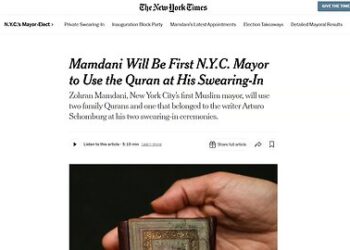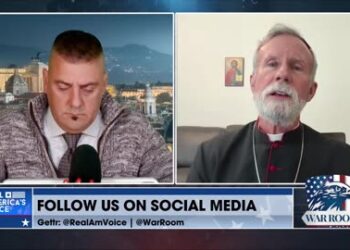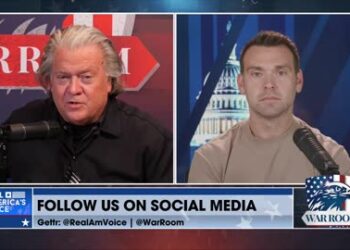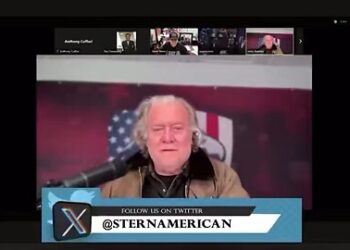On Thursday, Kash Patel and Josh Hammer talked about Christian nationalism and its implications in American politics as the topic has takenk center stage. Hammer, a Jewish commentator and journalist, critiqued what he described as the embrace of Christian nationalism within the Republican Party during the era of Donald Trump. He highlighted instances where prominent figures like Charlie Kirk advocated for viewing elections as spiritual battles and argued for Trump’s role in restoring morality despite his controversial history.
“America was founded as a deeply religious country,” Hammer asserted, citing historical references that underscored the profound biblical influence on the Founding Fathers. He argued that religious participation in public life, including political activism by Christians, enriches American society and enhances civic engagement across communities.
Hammer emphasizes the pivotal role of Christianity in American public life, asserting that a more active and visible Christian presence benefits not only Christians themselves but also improves society as a whole. He argues passionately against the notion that America’s founders intended a strict separation of church and state, citing historical examples and stating that the nation was founded deeply inspired by biblical principles. Hammer links the decline in church attendance to various societal issues stemming from what he calls “woke maladies.” His views reflect a belief in the positive impact of religious faith on American culture and governance, advocating for a robust engagement of Christian values in shaping public discourse and policy.
To open the segment, a short clip of MSNBC’s commentator, Joy Reid, was played, where Reid trashed the MAGA movement for being too Christian.
Hammer criticized Reid’s vehement opposition to what she perceives as the growing influence of Christian nationalism, referring to her commentary as a “nuclear meltdown.” He pointed out the hypocrisy in media platforms like The New York Times hosting perspectives that question the validity of voting, suggesting it disenfranchises marginalized communities.
During the discussion, Hammer contextualized the historical role of religion in American public life, debunking the notion that the Founding Fathers intended a complete separation of church and state. He emphasized that while the First Amendment prevents Congress from establishing an official state religion, it historically allowed states to establish their own churches well into the 19th century, contrary to modern interpretations.
Hammer concluded by linking the decline in church attendance to what he termed “woke maladies” in contemporary American culture, suggesting that a resurgence in public religious expression could more effectively address societal challenges. He expressed optimism about the positive impact of religious engagement on American democracy and encouraged Christians to embrace their role in shaping public policy.
In sum, Hammer’s commentary provided a nuanced perspective on the intersection of religion and politics in America, challenging perceptions of Christian nationalism while advocating for a more robust public role for religious values in shaping national discourse and policy.
For more context, watch the full WarRoom segment:




